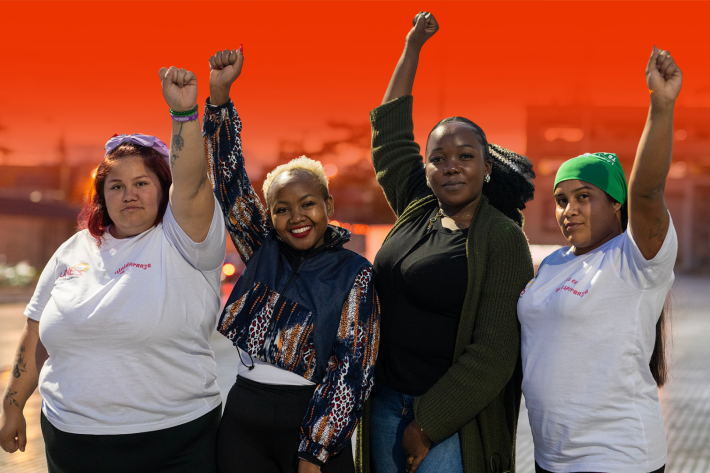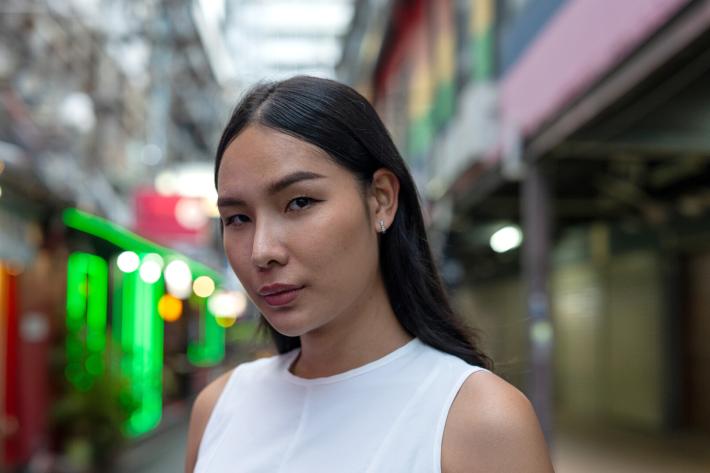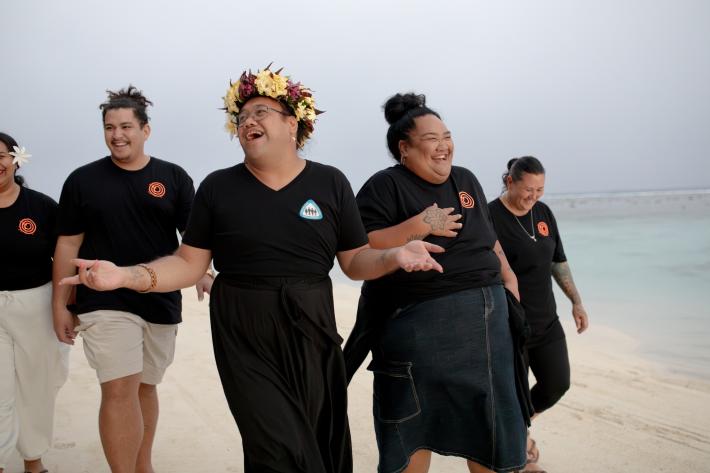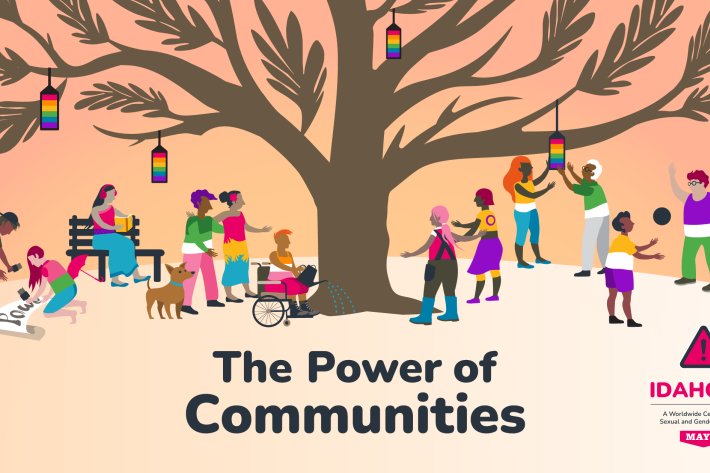
Spotlight
A selection of news from across the Federation
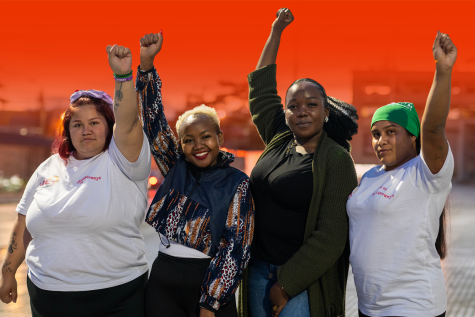
We Made It a Charter: IPPF’s Declaration of Values
Proud, bold, and united: we are values-led.
Filter our news by:


| 25 January 2025
Our Statement on the Reinstatement of the Global Gag Rule
On 24 January 2025, President Trump signed an executive order reinstating the Global Gag Rule (GGR). The International Planned Parenthood Federation (IPPF) - a federation of members and partners in 153 countries - fights for the right of every individual to decide about their own health, well-being and life. IPPF will never support policies which actively restrict or violate an individual’s right to bodily autonomy, including the right to safe abortion. The GGR - also known as the Mexico City Policy - violates human rights by forcing women to continue with an unwanted pregnancy or into unsafe abortion, and IPPF will not tolerate it. The GGR is a far-reaching, destructive American foreign policy, one that is deeply unpopular with the American people. It denies U.S. funding to organisations like IPPF if they use money from other donors to provide safe abortion services, counselling or referrals. It blocks critical funding for health services like contraception, maternal health, abortion care, and HIV/AIDS prevention and treatment for organisations that refuse to sign it. When it has been enacted by previous Republican Presidents, evidence has shown that the GGR has led to an increase in maternal deaths, in unplanned pregnancies and unsafe abortions. It blocks access to health care for women and the most vulnerable people, silences SRHR advocates, reduces coverage of community health workers, and infringes on a country’s sovereignty. The Global Gag Rule’s reinstatement will result in an escalation in avoidable health crises, needless physical and emotional harm, a loss of dignity for women, and death. IPPF anticipates it will lose $61 million USD for programs that provide sexual and reproductive health services for millions of women and youth. 13 countries and 16 healthcare projects worldwide are affected by the Global Gag Rule. Without funding, the people we serve will otherwise go without these vital services, including women suffering the burden of health and humanitarian crises. Donald Makwakwa, Executive Director, Family Planning Association of Malawi (FPAM): "The reinstatement of the global gag rule will have devastating consequences for women and girls in Malawi, where access to sexual and reproductive health services is already limited. Projected funding cuts to FPAM will disproportionately harm women and young girls in Malawi, many of whom rely on these services to avoid unplanned pregnancies, unsafe abortions, and maternal deaths. It is a cruel policy that sacrifices lives and bodily autonomy." The global gag is further insult to injury on top of other U.S. foreign policies that have a catastrophic impact on the communities in which our MAs work. Just yesterday, the State Department’s Office of Foreign Assistance sent a global cable that ordered an immediate pause on new foreign aid spending, as well as a stop-work order for existing grants and contracts. The new executive action targeting transgender, non-binary and intersex individuals has resulted in great fear for our communities. We have already seen funding cut as a result of its new anti-DEI executive action. The US also announced it plans to renew its membership of the Geneva Consensus Declaration, an anti-abortion joint statement initially cosponsored by persons claiming to represent the governments of Brazil, Egypt, Hungary, Indonesia, Uganda, and the United States. It was signed by persons from 34 countries on October 22, 2020. It is clear foreign aid has become a political weapon, used to enforce hateful ideologies at the expense of women in all their diversity, and against LGBTQI+, poor and immigrant communities. We cannot—and will not—deny life-saving services to the people we serve. We urge other governments and donors to step forward and call out the damage and destruction of these destructive actions. We stand in solidarity with our community. Now is the time for our movement to unite, to come together and to fight for a world of sexual and reproductive health, rights and justice for ALL. Learn more about Global Gag Rule here: The Global Gag Rule | IPPF For more information, please contact media@ippf.org or +44 7918 845 944. About the International Planned Parenthood Federation IPPF is a global healthcare provider and a leading advocate of sexual and reproductive health and rights (SRHR) for all. Led by a courageous and determined group of women, IPPF was founded in 1952 at the Third International Planned Parenthood Conference. Today, we are a movement of 158 Member Associations and Collaborative Partners with a presence in over 153 countries. Our work is wide-ranging, including comprehensive sex education, provision of contraceptive, safe abortion, and maternal care and responding to humanitarian crises. We pride ourselves on being local through our members and global through our network. At the heart of our mission is the provision of – and advocacy in support of – integrated healthcare to anyone who needs it regardless of race, gender, sex, income, and crucially no matter how remote.

| 01 December 2023
IPPF marks World AIDS Day by announcing the launch of a special program to roll out new biomedical HIV prevention methods
IPPF provides comprehensive sexual and reproductive health care to clients around the world. HIV testing, prevention, and treatment services are essential parts of our integrated sexual and reproductive health care package. To expand the choices individuals have to protect themselves from HIV, IPPF is excited to announce a special program to provide the newest methods of HIV prevention - injectable PrEP (a 2-monthly injection of cabotegravir-LA) and the vaginal ring (a monthly vaginal ring of dapivirine), as well as expanding where oral PrEP is offered. This program is being launched through a consortium of IPPF Member Associations called the Consortium to Advance Access to new HIV Prevention Products (CAAPP) - led by Family Planning Association of India, and including the Family Life Association of Eswatini, Lesotho Planned Parenthood Association, Family Planning Association of Malawi, Federation of Reproductive Health Associations, Malaysia, Family Planning Association of Nepal, and Planned Parenthood Association of Thailand. We hope this program will increase access to the number of ways people can protect themselves from HIV, supporting individual's choice to find an HIV prevention method that works for them.

| 20 July 2016
End gender based violence and HIV to ensure equity
18 July, Durban: Gender Based Violence (GBV) must be recognised and addressed if we are to end HIV and AIDS urged the International Planned Parenthood Federation (IPPF) and the United Nations Entity for Gender Equality and the Empowerment of Women (UN Women) at a panel during the International AIDS Conference Monday. The impact of HIV among women and girls in all their diversity is significant and alarming. Women’s greater physical vulnerability to HIV is compounded by social norms, gender inequalities, poverty and violence. Women living with HIV are also more likely to face stigmatisation, infertility, and even abuse and abandonment, contributing to their disempowerment. In East and Southern Africa, the risk of HIV among women who have experienced violence maybe three times higher In Uganda and South Africa studies found women who experienced intimate partner violence were 50 per cent more likely to have HIV than women who had not experienced violence. In many countries in Africa, getting married is among the ‘riskiest’ behaviour for women, where they may be exposed to unprotected sex with a husband who has multiple sexual partners, and to underlying power dynamics between men and women that prevent women from accessing condoms and then insisting on their use. Julia Omondi, a 24 year old advocate from Family Health Options Kenya (FHOK) highlighted the most common root causes of gender based violence and HIV, ‘I work with a group of 50 young girls like myself, called the 3E advocates to prevent girls from child marriage; support girls who are living with HIV to understand their rights, make parents and communities aware of the laws that protect girls from child marriage. We need to raise our voices to stop child marriage and turn the tide against HIV’. “Empowerment + Engagement = Equality” is a joint project supported by UN Women and IPPF implemented in Kenya, Malawi and Uganda to address HIV vulnerability among adolescent girls and young women by engaging and empowering them. Traditional leaders like the senior chief Theresa Kachindamoto from Malawi spoke of her role to change harmful gender related practices, she said, ‘Chiefs as custodians of culture should be at the forefront to end cultural practices that negatively affect people’s health like sexual cleansing (Fisi), chief blanket. My village is now a model for others and my fellow chiefs come to learn about the change I have brought to Dedtza district in Malawi.’ Nazneen Damji, Policy Advisor- gender equality, health and HIV/AIDS at UN Women, highlighted the recognition by global leaders on the importance of addressing GBV and HIV. “Violence, and the fear of violence, can play a major role in women’s reluctance to know her HIV status and seek care. Fortunately, the Political Declaration on HIV/AIDS adopted in June at the UN General Assembly and the Resolution on women, the girl child and HIV adopted at the 60th Session of the Commission on the Status of Women both call on governments to intensify efforts to end all forms of violence against women and girls, including harmful practices that contribute to the spread of HIV amongst women and girls” ‘Civil society organisations like IPPF play an important part in holding governments accountable. We shouldn’t underestimate our role as advocates to inform national, regional and global policies. If we are to address the dual epidemics of GBV and HIV we need to have progressive polices where perpetrators can be brought to justice and laws and policies uphold gender equality’ said Zelda Nhlabatsi, the executive director of Family Life Association of Swaziland (FLAS). The session was sponsored by IPPF Africa Region, UN Women and the Ford Foundation.








